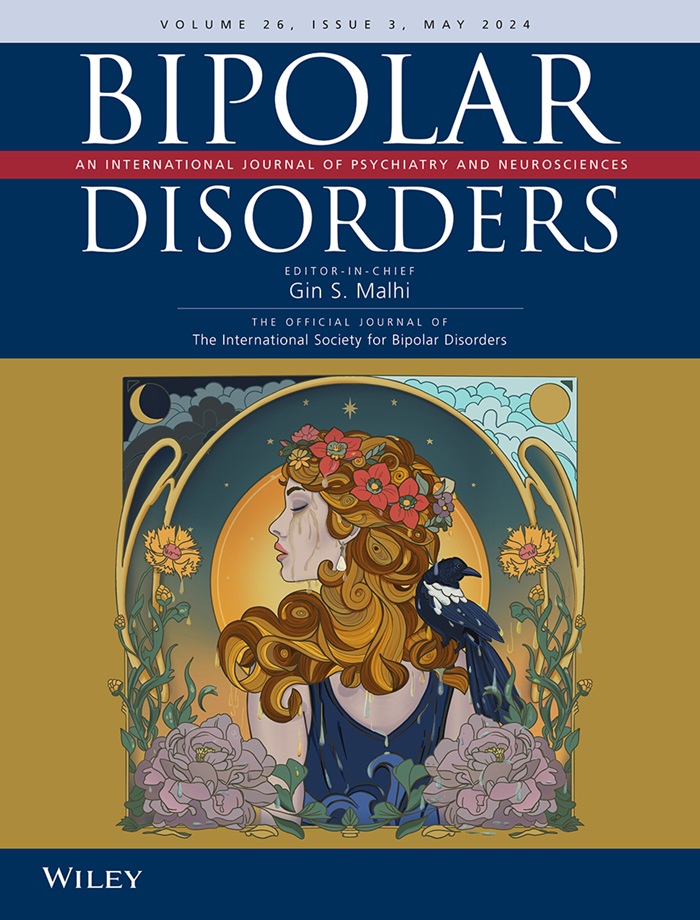Who benefits from digital interventions for bipolar disorder? Stage of illness characteristics as predictors of changes in quality of life
Abstract
Objectives
This study explored the potential role of stage-related variables in intervention outcomes in bipolar disorder (BD). Specifically, we aimed to identify which subgroups of individuals were most likely to experience improved quality of life following digitally delivered psychosocial interventions for BD.
Methods
The study involved a secondary analysis of combined data from two randomised control trials (RCTs). Each trial assessed the effectiveness of digitally delivered interventions for improving quality of life, in late-stage (ORBIT RCT) or early-stage (BETTER RCT) BD. Three iterations of cluster analyses were performed, identifying subgroups of individuals based on (i) current phenomenology, (ii) course of illness and (iii) medication response. The resultant subgroups were compared with regard to changes in quality of life pre-post intervention, via repeated measures ANOVAs.
Results
In each cluster analysis, two clusters were found. The current phenomenology clusters reflected two impairment levels, ‘moderate impairment’ and ‘low impairment’. The course of illness clusters reflected ‘more chronicity’ and ‘less chronicity’ and the medication response clusters reflected ‘good medication response’ and ‘poor medication response’. Differences in changes in quality of life over time were observed between the two current phenomenology clusters and between the medication response clusters, while the course of illness subgroups did not respond differently.
Conclusions
There are at least two distinct groups of treatment-seeking individuals with established BD, based on illness features with previously established links to different illness stages. Clusters within the current phenomenology and medication response domains demonstrated significantly different trajectories of QoL change over time in the context of our interventions, highlighting potential implications for treatment selection aligned with precision psychiatry.


 求助内容:
求助内容: 应助结果提醒方式:
应助结果提醒方式:


